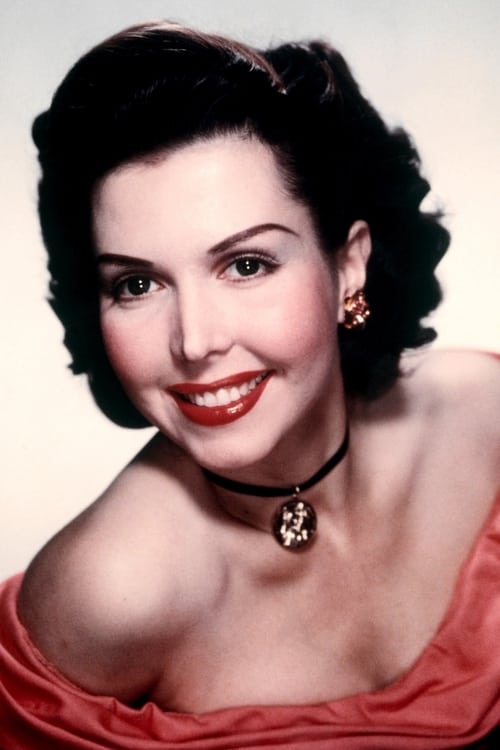
Ann Miller
Birth : 1923-04-12, Houston, Texas, USA
Death : 2004-01-22
History
From Wikipedia, the free encyclopedia
Johnnie Lucille Collier (April 12, 1923 – January 22, 2004), known professionally as Ann Miller, was an American dancer, singer and actress. She is best remembered for her work in the Classical Hollywood musical films of the 1940s and 1950s.
At age 13 in 1936, Miller became a showgirl at the Bal Tabarin. She was hired as a dancer in the "Black Cat Club" in San Francisco (she reportedly told them she was 18). It was there that she was discovered by Lucille Ball and talent scout/comic Benny Rubin (although some sources say this occurred at Bal Tabarin). This led Miller to be given a contract with RKO in 1936 at the age of 13 (she had also told them she was 18, and apparently provided a fake birth certificate, procured by her father - with the name "Lucy Ann Collier") and she remained there until 1940.
In 1941, she signed with Columbia Pictures, where, starting with Time Out for Rhythm, she starred in 11 B movie musicals from 1941 to 1945. In July 1945, with World War II still raging in the Pacific, she posed in a bathing suit as a Yank magazine pin-up girl. She ended her contract in 1946 with one "A" film, The Thrill of Brazil. The ad in Life magazine featured Miller's leg in a large, red, bow-tied stocking as the "T" in "Thrill". She finally hit her mark in Metro-Goldwyn-Mayer musicals such as Easter Parade (1948), On the Town (1949) and Kiss Me Kate (1953).
Miller was famed for her speed in tap dance. Studio publicists concocted press releases claiming she could tap 500 times per minute, but in truth, the sound of ultra-fast "500" taps was looped in later. Because the stage floors were waxed and too slick for regular tap shoes, she had to dance in shoes with rubber treads on the sole. Later she would loop the sound of the taps while watching the film and actually dancing on a "tap board" to match her steps in the film.
Her film career effectively ended in 1956 as the studio system lost steam to television, but she remained active in the theater and on television. She starred on Broadway in the musical Mame in 1969, in which she wowed the audience in a tap number created just for her. In 1979 she astounded audiences in the Broadway show Sugar Babies with fellow MGM veteran Mickey Rooney, which toured the United States extensively after its Broadway run. In 1983, she won the Sarah Siddons Award for her work in Chicago theatre. She appeared in a special 1982 episode of The Love Boat, joined by fellow showbiz legends Ethel Merman, Carol Channing, Della Reese, Van Johnson and Cab Calloway in a storyline that cast them as older relatives of the show's regular characters. Her last stage performance was a 1998 production of Stephen Sondheim's Follies, in which she played hardboiled Carlotta Campion and received rave reviews for her rendition of the song "I'm Still Here".
For her contribution to the motion picture industry, Miller has a star on the Hollywood Walk of Fame at 6914 Hollywood Blvd. In 1998, a Golden Palm Star on the Palm Springs, California, Walk of Stars was dedicated to her. To honor Miller's contribution to dance, the Smithsonian Institution displays her favorite pair of tap shoes, which she playfully nicknamed "Moe and Joe".

Self
Broadway: Beyond the Golden Age explores the world of Broadway from 1959 through the early 1980s as recounted by a diverse cast of Broadway stars who lived through it, creating a first-hand archive of personal backstage stories and memories. The new documentary is the long-awaited sequel to late filmmaker Rick McKay’s award-winning 2003 film Broadway: The Golden Age, continuing the saga into the '60s and '70s and spotlighting beloved classic Broadway shows including Once Upon a Mattress, Bye Bye Birdie, Barefoot in the Park, Pippin, A Chorus Line, Ain’t Misbehavin’, Chicago, and 42nd Street. Featuring a galaxy of stars including Alec Baldwin, Carol Burnett, Glenn Close, André De Shields, Jane Fonda, Robert Goulet, Liza Minnelli, Chita Rivera, Dick Van Dyke, Ben Vereen, and many more, the film also includes rare archival photos and never-before-seen footage both onstage and off.

Self
This documentary tells the story of the making of Irving Berlin's Easter Parade.

Herself
As Hollywood biographies go, Judy Garland's story is one of the saddest success stories you'll ever hear. The sanitized studio version of her life presented a smiling kid with the big voice, who, alongside Mickey Rooney, just wanted to put on a show. But drugs, overwork, even psychological abuse at the hands of the studio is now part of the Garland legend. But despite the number of Garland books and documentaries, one account has always been missing -- Garland herself never managed to write a memoir. She did make several attempts at an autobiography, often recording stories on a tape recorder. Judy Garland: By Myself (2004), finally fills in the blanks - using Judy's personal recordings to tell the story in her own words.

Self
Biography of 1940's sex goddess Rita Hayworth.

Ann (segment "Sugar Babies")
The golden age of the annual Tony Awards ceremony lasted from 1967 to 1986 — the period during which Alexander H. Cohen and his wife, Hildy Parks, were the producers of the show. This film offers a compilation of performances from Tony Award broadcasts during those years. They are presented with color-corrected footage and digitally re-mastered sound.

Self
Documentary - Take an in-depth look at the personal lives and careers of the famous Marx Brothers: Groucho, Harpo, Chico, Zeppo and Gummo. Pioneers on the American comedy scene, the brothers' comedic timing, wit and style are unmatched to this day. Fans will delight in this broad collection of Marx memorabilia, including favorites such as "Animal Crackers," "Monkey Business," "Duck Soup" and "A Night at the Opera," as well as interviews and rare footage. - Chico Marx, Groucho Marx, Harpo Marx

Herself
Broadway: The Golden Age is the most important, ambitious and comprehensive film ever made about America's most celebrated indigenous art form. Award-winning filmmaker Rick McKay filmed over 100 of the greatest stars ever to work on Broadway or in Hollywood. He soon learned that great films can be restored, fine literature can be kept in print - but historic Broadway performances of the past are the most endangered. They leave only memories that, while more vivid, are more difficult to preserve. In their own words — and not a moment too soon — Broadway: The Golden Age tells the stories of our theatrical legends, how they came to New York, and how they created this legendary century in American theatre. This is the largest cast of legends ever in one film.

Self (archive footage)
American Masters Series. Documentary on Gene Kelly that gives insight into his dancing, how he formed a style (first "blue collar dancer") and developed different cinematique techniques, such as brilliantly shot dancing sequences.

Self (archive footage) (uncredited)
The films, affairs and struggles of the iconic star of The Blue Angel as told by Rosemary Clooney, Roger Corman, Deanna Durbin and many more.
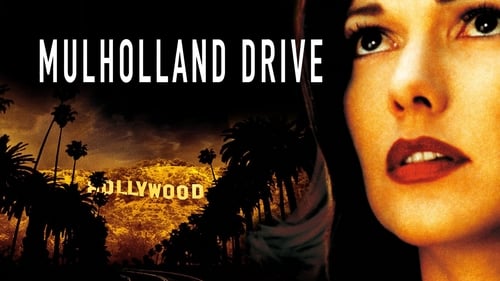
Coco
Blonde Betty Elms has only just arrived in Hollywood to become a movie star when she meets an enigmatic brunette with amnesia. Meanwhile, as the two set off to solve the second woman's identity, filmmaker Adam Kesher runs into ominous trouble while casting his latest project.

(archive footage)
Highlights from the great musicals of the 1940s. Stars featured include Judy Garland, Mickey Rooney, Fred Astaire, Gene Kelly, Bing Crosby, Doris Day, Danny Kaye, Jimmy Durante and Frank Sinatra.

Self
Frank Sinatra, the greatest entertainer of the 20th century, is remembered by some of the brightest stars in Hollywood in this television memorial which celebrates his life and mourns his passing. Exclusive flashback interviews with Sinatra, his friends and his family, reveal little known facts about his overwhelming generosity and the sensationalized image created by the press. * In-depth interviews with those who knew him best... Ed McMahon, Tommy Sands, Shecky Green, Phyllis McGuire, Quincy Jones, & Betty Garrett, among others. * See highlights from some of Sinatra’s last films and farewell perfomances.

Coco
Initially, "Mulholland Dr." was to mark David Lynch's return to television. It is a retooling of a script originally shot as a 94-minute pilot for a TV series (co-written with TV screenwriter Joyce Eliason) for the channel ABC, which had approved the script, but chose not even to air the pilot once it was done in 1999, despite Lynch's labours to cut the project to their liking. It was left in limbo until 18 month later French company Studio Canal Plus (also producer of 'The Straight Story') agreed to pay ABC $7 million for the pilot, and budget a few million more to turn the pilot into a two-hour, 27-minute movie. The cost of the film doubled to $14 million as sets had to be reconstructed and actors recalled.

Self
Faye Dunaway hosts a behind-the-scenes look at the Hollywood star-making machine.

Self - Co-Host / Narrator
Some of MGM'S musical stars review the studios history of musicals. From The Hollywood Revue of 1929 to Brigadoon, from the first musical talkies to Gene Kelly in Singin' in the Rain.

Self
Emmy Award-Winning Special Desi and Lucy's daughter, Lucie Arnaz, hosts this emotional and honest glimpse at the extraordinary lives of her world-famous parents, highlighted by never-before-seen color family movies along with insightful interviews from family members, business associates and celebrity friends such as Bob Hope. Winner of the Emmy Award for Outstanding Informational Special, LUCY & DESI: A HOME MOVIE is a sensitive and absorbing documentary that details the circumstances which brought the immortal twosome together and ultimately drove them apart.
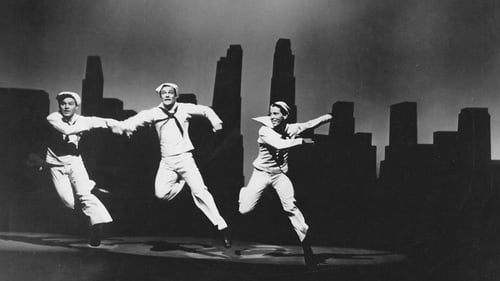
A documentary film about dancing on the screen, from it's orgins after the invention of the movie camera, over the movie musical from the late 20s, 30s, 40s 50s and 60s up to the break dance and the music videos from the 80s.

Self
The most glittering, expensive, and exhausting videotaping session in television history took place Friday February 19, 1982 at New York's Radio City Music Hall. The event, for which ticket-buyers payed up to $1,000 a seat (tax-deductible as a contribution to the Actors' Fund) was billed as "The Night of 100 Stars" but, actually, around 230 stars took part. And most of the audience of 5,800 had no idea in advance that they were paying to see a TV taping, complete with long waits for set and costume changes, tape rewinding, and the like. Executive producer Alexander Cohen estimated that the 5,800 Radio City Music Hall seats sold out at prices ranging from $25 to $1,000. The show itself cost about $4 million to produce and was expected to yield around $2 million for the new addition to the Actors Fund retirement home in Englewood, N. J. ABC is reputed to have paid more than $5 million for the television rights.
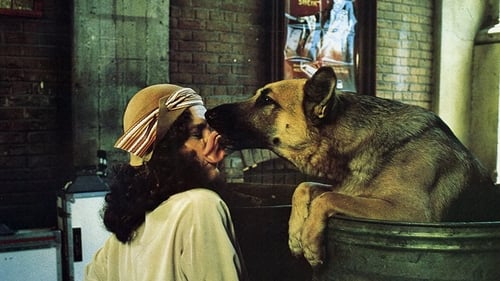
Presidents' Girl 2
A would-be filmmaker and actress shake up the industry with a trick dog who gets discovered by a studio bus driver in the 1920s.

(archive footage)
Gene Kelly and Fred Astaire present more golden moments from the MGM film library, this time including comedy and drama as well as classic musical numbers.

(archive footage)
Various MGM stars from yesterday present their favorite musical moments from the studio's 50 year history.

Mona
Dames at Sea is a musical with book and lyrics by George Haimsohn and Robin Miller and music by Jim Wise. The musical is a parody of large, flashy 1930s Busby Berkeley-style movie musicals in which a chorus girl, newly arrived off the bus from the Midwest to New York City, steps into a role on Broadway and becomes a star. It originally played Off-Off-Broadway in 1966 at the Caffe Cino and then played Off-Broadway, starring newcomer Bernadette Peters, beginning in 1968 for a successful run. The television version was broadcast on the Bell System Family Theater on NBC on November 15, 1971. The cast had extra chorus girls and boys, and there were full production numbers, turning into the very thing it was spoofing. Ann Miller was singled out for praise, especially when "she was allowed to tap out her brassy...temperamental star..."
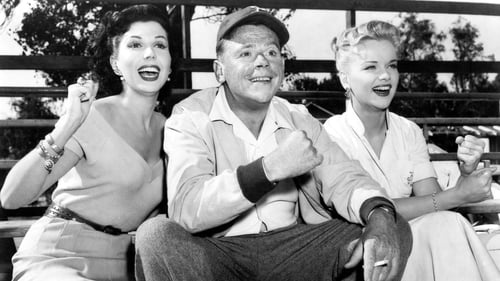
Doris Patterson
Bruce Hallerton becomes coach of the Panthers, a little league baseball team. The fact that an attractive widow has her son in the team causes problems with his wife.
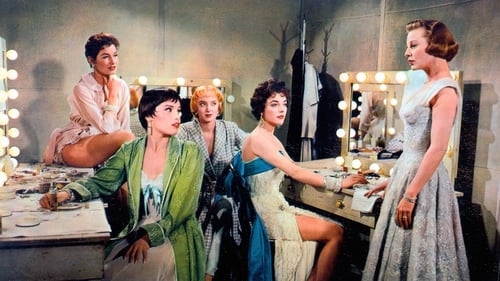
Gloria Dahl
Former radio singer Kay learns from her gossipy friends that her husband, Steve, has had an affair with chorus girl Crystal. Devastated, Kay tries to ignore the information, but when Crystal performs one of her musical numbers at a charity benefit, she breaks down and goes to Reno to file for divorce. However, when she hears that gold-digging Crystal is making Steve unhappy, Kay resolves to get her husband back. The Opposite Sex is a remake of the 1939 comedy The Women.
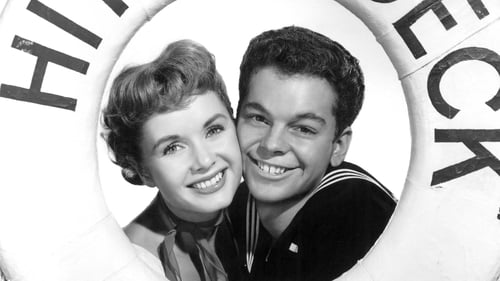
Ginger
Sailors on leave in San Francisco get mixed up in love and show business.
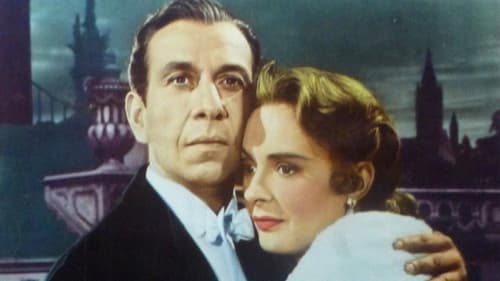
Performer in Artists and Models
Biographic movie about the American composer Sigmund Romberg.
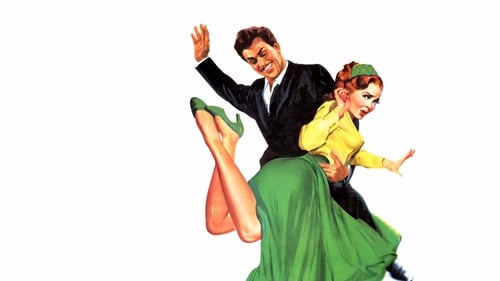
Lois Lane / Bianca
Fred and Lilli are a divorced pair of actors who are brought together by Cole Porter who has written a musical version of The Taming of the Shrew. Of course, the couple seem to act a great deal like the characters they play. A fight on the opening night threatens the production, as well as two thugs who have the mistaken idea that Fred owes their boss money and insist on staying next to him all night.
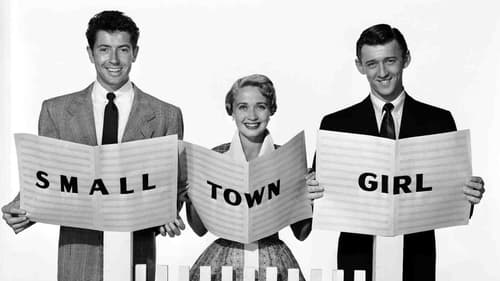
Lisa Bellmount
Rick Belrow Livingston, in love with Broadway star Lisa, is sentenced to 30 days in jail for speeding through a small town. He persuades the judge's daughter Cindy to let him leave for one night, so that he can visit Lisa on her birthday. After that he goes on the town with Cindy and she falls in love with him. But Dr. Schemmer wants his son to become her husband.
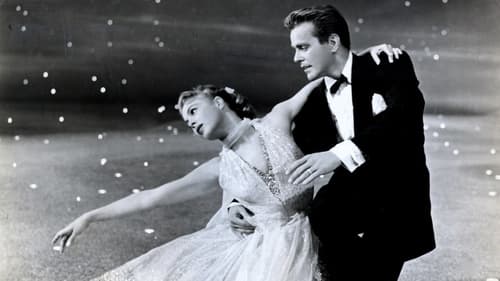
Bubbles Cassidy
Three broke Broadway producers are desperately looking for backers for a new show. When they are about to give up, one of them discovers that they are an heir to a Parisian dress salon. Off to Paris they go!
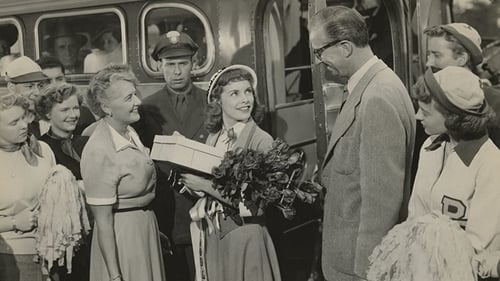
Joyce Campbell
A young woman (Janet Leigh) leaves her small hometown in Vermont and travels to New York City with hopes of becoming a Broadway star.
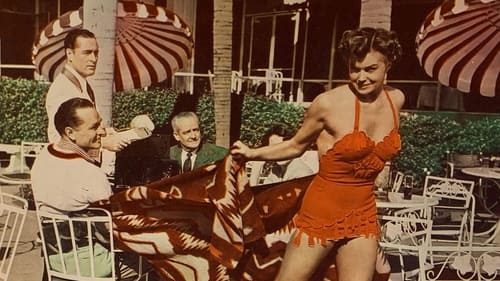
Sunshine Jackson
A Texas carnival showmen team is mistaken for a cattle baron and his sister.
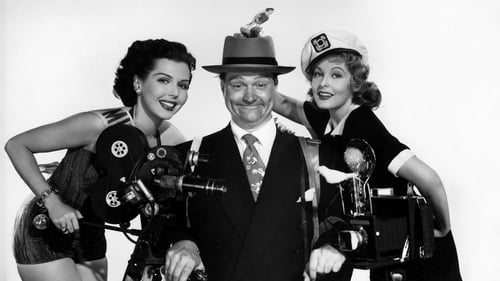
Miss Lucky Vista
A photographer falls for a rich girl and gets mixed up with crooks.
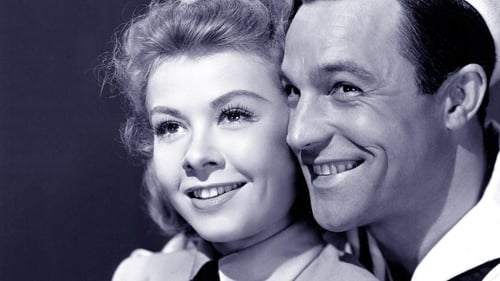
Claire Huddesen
Three sailors - Gabey, Chip and Ozzie - let loose on a 24-hour pass in New York and the Big Apple will never be the same! Gabey falls head over heels for "Miss Turnstiles of the Month" (he thinks she's a high society deb when she's really a 'cooch dancer at Coney Island); innocent Chip gets highjacked (literally) by a lady cab driver; and Ozzie becomes the object of interest of a gorgeous anthropologist who thinks he's the perfect example of a "prehistoric man". Wonderful music and terrific shots of New York at its best.

Herself
This film visits many of the neighborhoods and landmarks on Manhattan Island and occasionally includes a history lesson. The neighborhoods include the Bowery, Chinatown, Herald Square, and Times Square. Some of the architectural highlights are the Empire State Building, the New York Public Library, Temple Emanuel, the Central Park Zoo, and the Rockefeller Center complex. The film ends with a visit to a dining room in the Waldorf Astoria Hotel, where the Xavier Cugat Orchestra entertains.
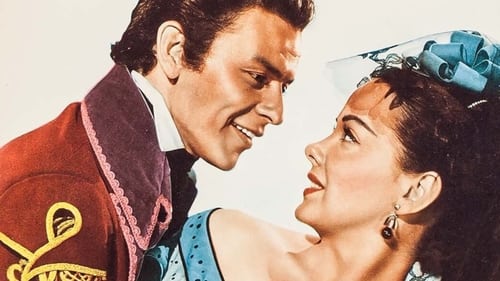
Fiesta Specialty Dancer
Ricardo, the milquetoast son of a Mexican bandit, would rather lead a quiet life in Boston. But the family would rather that he follow in his father's footsteps and become "The Kissing Bandit".
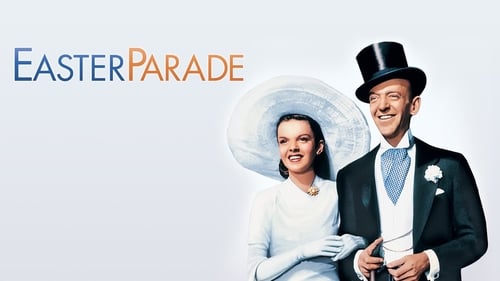
Nadine Hale
On the day before Easter in 1911, Don Hewes is crushed when his dancing partner (and object of affection) Nadine Hale refuses to start a new contract with him. To prove Nadine's not important to him, Don acquires innocent new protege, Hannah Brown, vowing to make her a star in time for next year's Easter parade.

Linda Lorens
Steve, revue producer in Rio de Janeiro, is still in love with his ex-wife Vicki, his star Linda is in love with Steve and Tito is in love with Linda. Because of this they all get small problems.

Eve Porter
Radio singing star, Eve Porter, wants a vacation during her show's summer hiatus, but her manager and press have booked her for additional work. She refuses and goes to Las Vegas. When she finds them there hunting her down, she manages to escape them by hiding in the car of a newspaper reporter. She comes out of hiding while he is driving, but everything she says is misconstrued, making him believe that she is a recently-escaped convict, "The Singing Widow". He plans to use this as a story to get back into the good graces of his editor. Through some comic mishaps, he learns who she really is. He then decides to take her back to Hollywood to collect the reward for her return. But now love has entered the mix, and must be resolved with his job and her engagement to another.
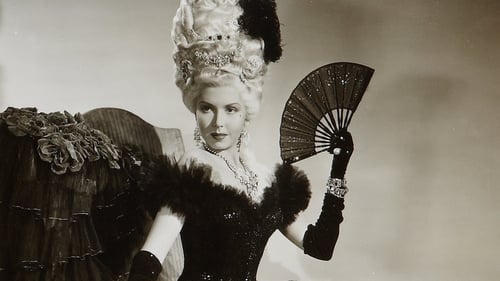
Eadie Allen / Edithea Alden
In this amiable Columbia B musical, society girl Ann Miller escapes her Back Bay family by performing in the chorus line in a burlesque house. But trouble starts when her boss (William Wright) decides to build her up as a star. One of the many bread-and-butter Columbia productions graced by the contributions of Cole’s in-house dance studio. Cole dances behind Miller in “I’m Gonna See My Baby.” --Museum of Modern Art

Julie Carver
When he loses his lead singer, bandleader Kay Kyser can't find a replacement he likes.

Terry Baxter
A young woman from Kansas (Ann Miller) arrives in Hollywood with hopes of a movie career.
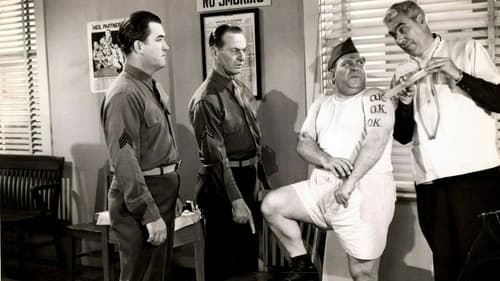
Winnie Clark
Musical comedy star Jimmy Leighter wants to get away from show biz and his leading lady Winnie Clark, so he joins the Army. There he gets the order to put on a show, Winnie Clark appears in a camp show, hears about his task and offers him his help. He thinks, she does it for her publicity only, so he doesn't want to know anything about this, till he finds out, that she has no such intentions.

In this comedy, three merchant marines get into all kinds of trouble. Two of the salts have just broken off their engagements after meeting other, more desirable women.

Ann Crawford
Musicians help a woman (Ann Miller) and her friends make some money with a ghost-town hotel.
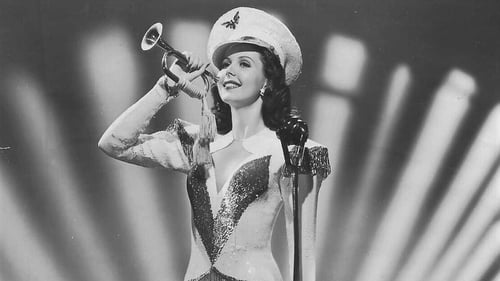
Beverly Ross
Beverly Ross, the switchboard operator at a local radio station, jumps at the chance to be the DJ for an early morning show before the soldiers at a nearby army camp assemble for reveille. Beverly, with her modern music, camp bulletins and chatter, is a hit with the soldiers. Beverly's younger brother and his two buddies are soldiers at the camp. The buddies vie for Beverly's attentions.

Donna D'Arcy
Band leader Johnny Draper auditions his band, the Dixie Pixies, at the Eagle Aircraft Co., hoping to be hired to play for the workers in the plant. However, personnel manager E. V. Hartley can only offer them regular jobs, and when Johnny inspires the Dixie Pixies to work in the plant, lead singer and dancer Donna D'Arcy leaves the band for a singing job at the Club Martel in downtown Los Angeles.

Vicki Marlow
A wire-walker, on the run from gangsters, masquerades as a soldier at her boyfriend's Army base.

Hedda Hopper plays hostess at a party for her (grown) son William (DeWolfe Jr.). Hopper, attends the dedication of the Motion Picture Relief Fund's country home and goes to the Mocambo. There is also a sequence dedicated to the Milwaukee, Wisconsin world premiere of the first short in this series attended by more that a few film stars.
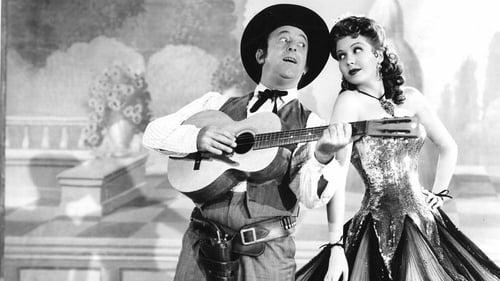
Lola
A young woman arrives in the western town of Headstone and helps the locals outsmart a gang of outlaws.
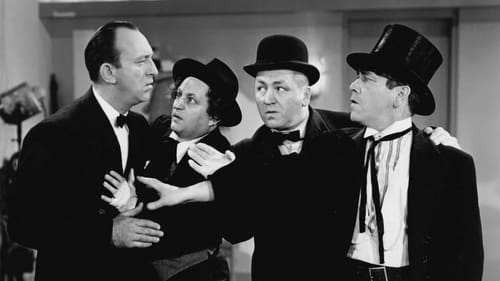
Kitty Brown
A producer and his partner clash over two women in show business.

Anabelle Potter
In this musical, the second entry in a five-film series, a thrift shop owner sells his business and buys a small time radio station. He begins looking for sponsors. He finds one with a department store owner who will only lend him the money if he will allow his daughter, an aspiring tap-dancer and singer, to perform on the air. This is unfortunate as she is tone-deaf. To compensate, the owner hires a real singer to dub the daughter's voice. The singer and the owner's nephew fall in love and mayhem ensues. Songs include: the Oscar nominated "Who Am I?," "Swing Low Sweet Rhythm," "In The Cool of the Evening," "Make Yourself at Home," "The Swap Shop Song," "The Trading Post," "Sally," "Ramona," "Sweet Sue," "Dinah," "Margie," and "Mary Lou."
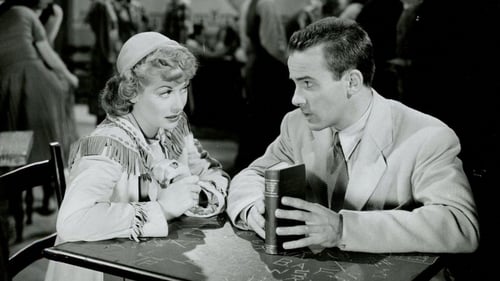
Pepe
Mr. Casey's daughter, Connie, wants to go to Pottawatomie College and without her knowledge, he sends four football players as her bodyguards. The college is in financial trouble and her bodyguards use their salary to help the college. The football players join the college team, and the team becomes one of the best. One of the football players, Clint, falls in love with Connie, but when she discovers he is her bodyguard, she decides to go back East. The bodyguards follow her, leaving the team in the lurch.

Julie Shelton
His Arizona hometown of Torpedo invites Gene back to be the honorary sheriff of the Frontier Days Celebration.
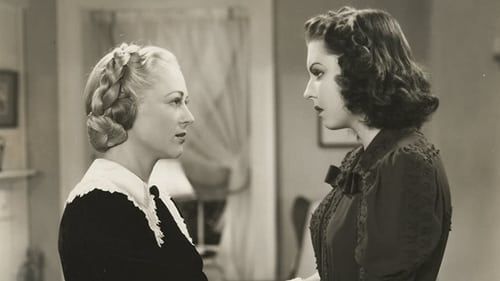
Violet McMaster
A showgirl with a dubious reputation flees the cops and transforms herself into a phony evangelist offering "cures" to the sick and disabled.

Hilda Manny
Broke Gordon Miller tries to land a backer for his new play while he has to deal with with the hotel manager trying to evict him and his cast.
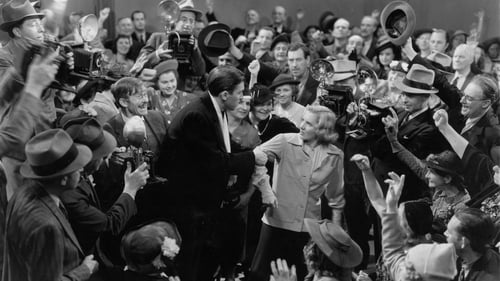
Essie Carmichael
Alice, the only relatively normal member of the eccentric Sycamore family, falls in love with Tony Kirby, but his wealthy banker father and snobbish mother strongly disapprove of the match. When the Kirbys are invited to dinner to become better acquainted with their future in-laws, things don't turn out the way Alice had hoped.
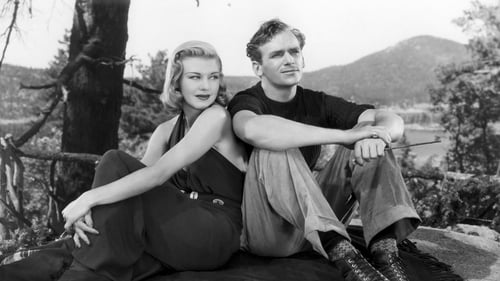
Vivian (uncredited)
Teddy Shaw, a bored New York office girl, goes to a camp in the Catskill Mountains for rest and finds Chick Kirkland.

Billie
A down-on-his-luck songwriter attempts to peddle musical compositions of a naive Arkansas hillbilly under his own name. Comedy.

Annie
The ups and downs in the lives and careers of a group of ambitious young actresses and show girls from disparate backgrounds brought together in a theatrical hostel. Centres particularly on the conflict and growing friendship between Terry Randall, a rich girl confident in her talent and ability to make it to the top on the stage, and Jean Maitland, a world weary and cynical trouper who has taken the hard knocks of the ruthless and over-populated world of the Broadway apprentice.
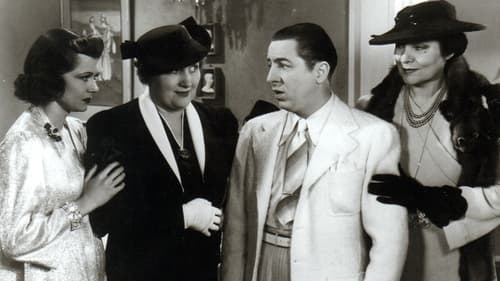
Betty
A singer finds another heir (Gene Raymond) to marry, to avoid the one (Joe Penner) her mother found.
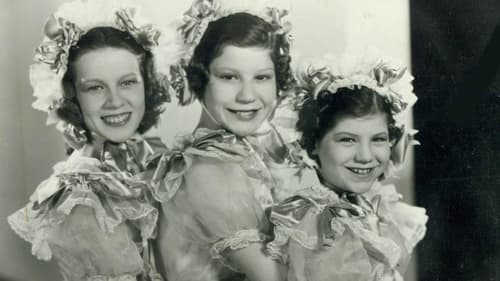
Ann Miller
A crooked producer makes money from Broadway flops by selling more than 100% interest to multiple parties. He only fails if it makes a profit.
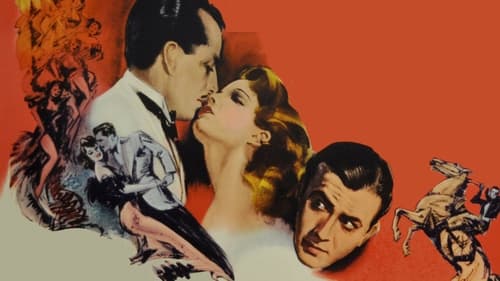
Dancer (uncredited)
This musical tells the story of Campo wooing Damita from Keating with songs "So Divine," "Out of the Hills," "The Love Fiesta," "Oh Bella Mia."
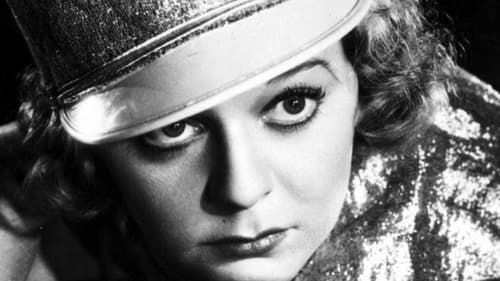
Schoolgirl in Orphanage (uncredited)
In 1930s Budapest, naïve orphan Luisa Ginglebuscher becomes an usherette at the local movie house, determined to succeed in her first job by doing good deeds for others and maintaining her purity. Luisa's well-meaning lies get her caught between a lecherous businessman, Konrad, and a decent but confused doctor, Max Sporum. When Luisa convinces Konrad that she's married to Max, Konrad tries everything he can to get rid of the baffled doctor.










































